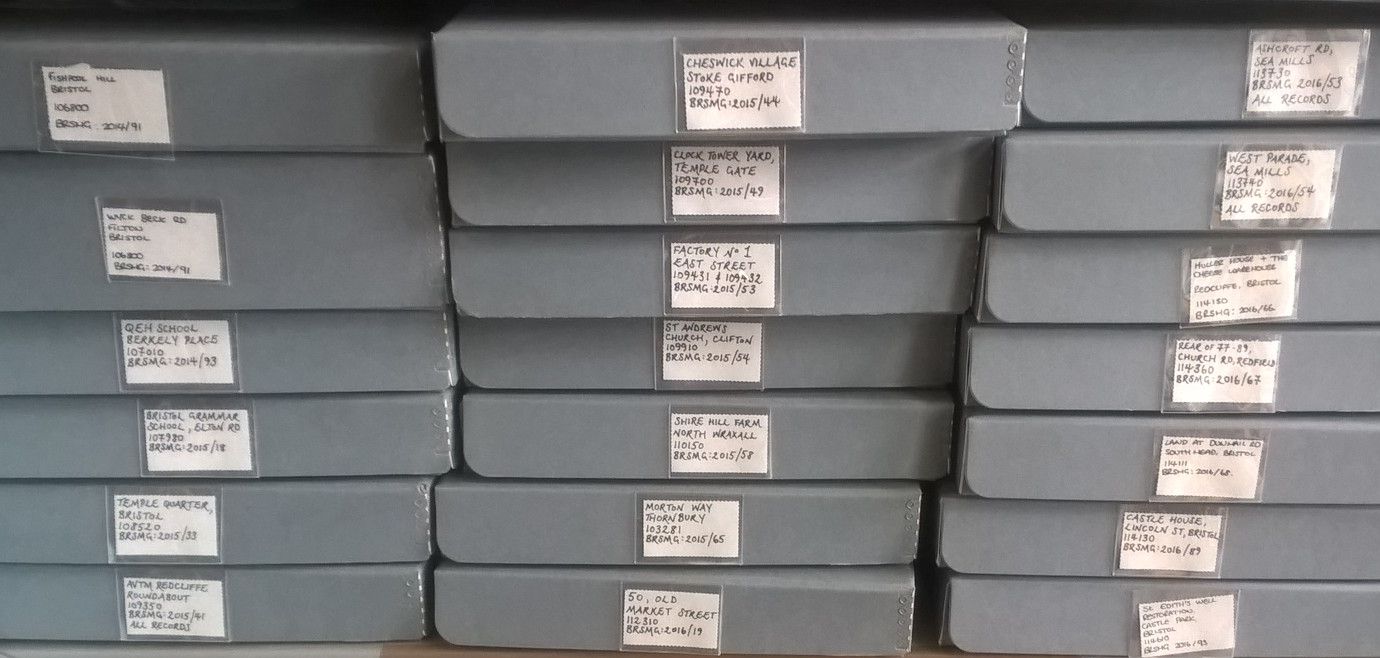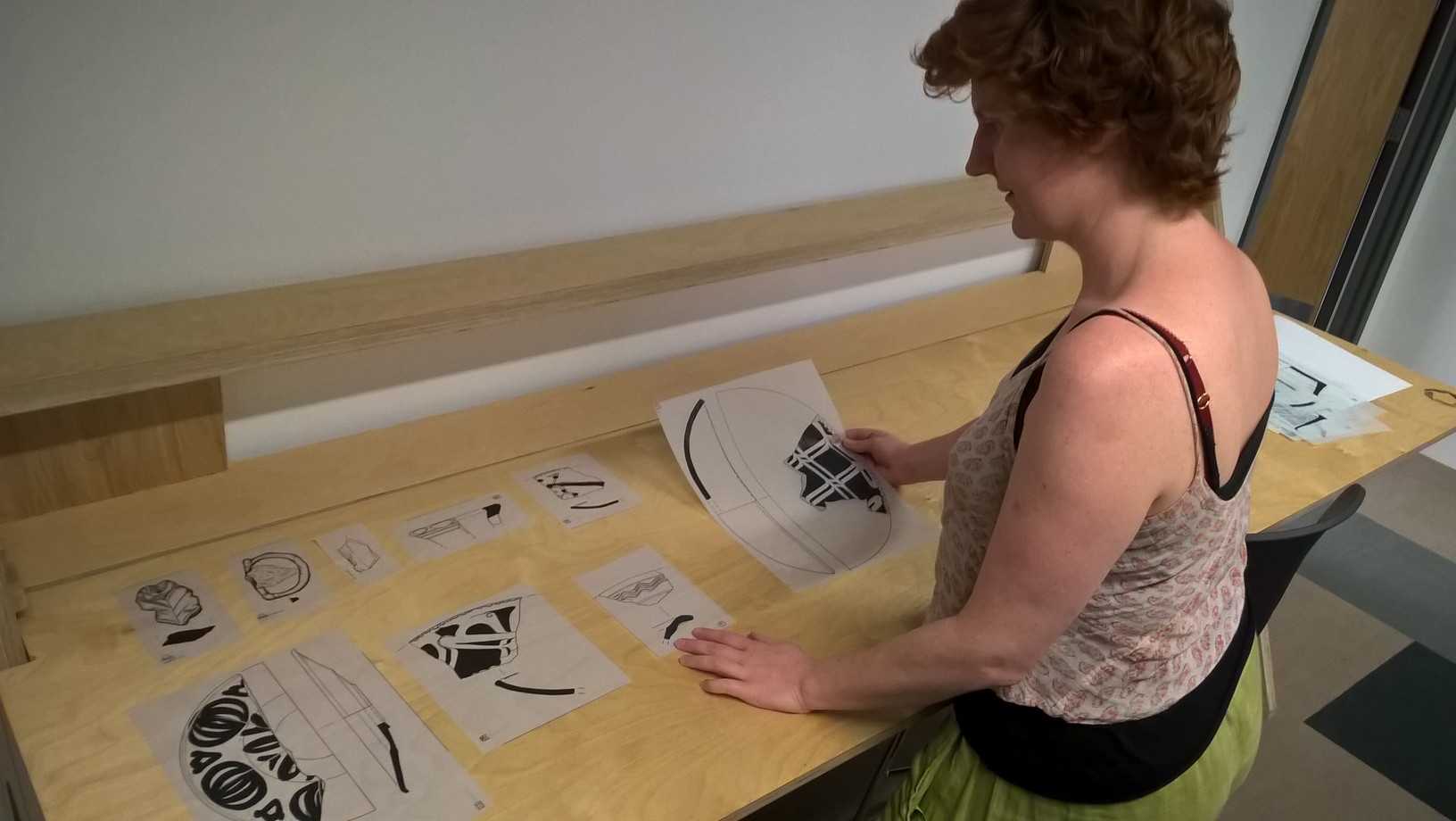
Towering shelves of grey document cases…that’s what you are confronted by when you step into an archive room. They might seem like an impenetrable wall, but these unassuming boxes are the culmination of decades of archaeological experience. Each case contains the neatly filed work of a team of intrepid (and sometimes soggy) field archaeologists and post-excavation specialists. The straight lines, clean surfaces and ordered world of the archivist sometimes feels worlds apart from where much of this information is collected. But archiving is very much part of the archaeological process.
My name is Frances Ward and I have been archiving at Wessex Archaeology West for just over a year now. Before that I was part of the fieldwork team at Wessex Archaeology and have worked for other South West based commercial archaeology companies for the last seven years. I graduated from the University of Exeter in 2009 having done a BA Hons. Degree in Archaeology. During that time I was lucky enough to travel to Crete and Sri Lanka on post-excavation research trips. Those years cemented my interest in the relationship human beings have with their landscape and material culture. Also, handling things…all archaeologists like to find things…especially things that were last handled by someone centuries/millennia ago.

So, after three years at University and seven years in fieldwork I joined the archives team. I didn’t realise when I first started the job how involved an archivist is with each project, from its inception right to its conclusion. At the beginning of each project I notify the relevant museum that fieldwork will be taking place. This allows them to prepare for the eventual deposition of finds and documents that make up a site archive. A line of communication is always open with museums so they can be kept informed if sites yield large quantities of finds or become more archaeologically significant than was initially expected. Then when the fieldwork and post-excavation work are completed I compile the records as specified in the relevant museum guidelines. A good analogy might be that an archivist’s work is the bread and the field and post-ex work are the filling in the sandwich that is commercial archaeology! If you like food based analogies.
Archiving is primarily about making all the work and results that fieldwork produces accessible to as many people as possible. Archives can be viewed in Museums but the finished reports are also available digitally online. Once projects are completed I enter the final details into the national OASIS database website, including pdf copies of reports. These will then get transferred into the ADS Library of Unpublished Fieldwork Reports where they are available to everyone…for free!
So, enjoy exploring all those archives.